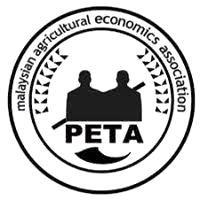Empirical Analysis on Import Diversification of Major Livestock Commodities in Malaysia
DOI:
https://doi.org/10.36877/mjae.a0000434Abstract
The long-standing underperforming self-sufficiency status of major ruminant commodities in Malaysia signifies that the livestock sub-sector is confronting crucial import dependency status, particularly beef and mutton. The self-sufficiency indicated stagnating and even deteriorating trends over the years, stemming from a massive gap between domestic production and the demand requirement for meat products. Various efforts and strategies are implemented to expand local beef and mutton production, yet the performance remains insignificant. This crucial situation further urges the government to implement the liberalization of import quota for the two main meat commodities, aiming to provide meat supply based on current needs either at the industry or consumer level and further facilitate market equilibrium for meat products. Nevertheless, the import tendency has concentrated on a few dominant markets, globally. Previous studies suggested trade diversification is crucial for multiple reasons towards creating a more sustainable economy and food security. Therefore, this study identifies the status of trade diversification of primary livestock commodities and measures the association between trade diversification and economic performance in Malaysia. Time series databases (2000 – 2020) were utilized and analyzed using quantitative methods to estimate the import diversification index (ID) using the Herfindahl-Hirschman Index (HHI), which is further used as an endogenous variable to develop the import diversification empirical model, while the exogenous variables include gross domestic product per capita, food security, and total factor productivity. The Import Diversification Index confirms beef import market demonstrates a low diversified import or highly concentrated market, whereas mutton showed more diversified import markets. The results showed that national gross per capita income and food security status are the two variables that significantly influence the country's concentrated import markets for beef and mutton import diversification status. This study also found that per capita national income, self-sufficiency, and total factor productivity significantly affect the trade diversification degree for beef and mutton imports in Malaysia. Despite being massively dependent on meat (beef and mutton) imports, none of the specific studies has attempted to measure the trade diversification circumstance in Malaysia. The findings of this study are useful in strategizing the diversification of import markets, particularly for primary ruminant livestock commodities, in line with the national food security direction and policy agenda in Malaysia.

.png)

.jpg)
